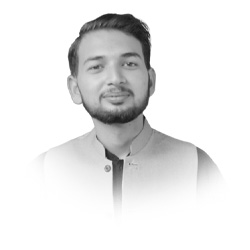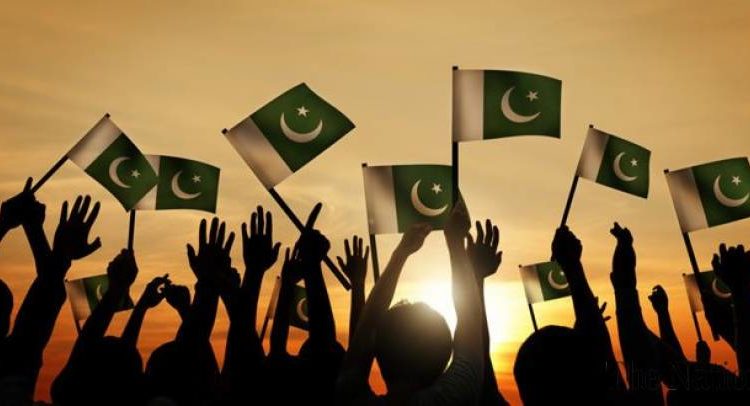By: Owais Fayaz

Pakistan, which is located in a region of geopolitical importance, has long faced a complex and dynamic political landscape. It is essential to critically assess the current situation and shed light on the obstacles and opportunities for democratic consolidation as the country moves through a number of political transitions. The goal of this opinion piece is to examine the complex political environment in Pakistan while providing insights into the main problems and possible solutions that could lead to a strong and stable democracy.
The pervasive polarization and division in Pakistan’s political environment is one of the major problems country faces. Major political parties have been engaged in a constant struggle for control over the nation, which frequently leads to acrimonious rivalries and clashes. This ongoing conflict not only makes it difficult for the government to solve pressing problems in an efficient manner, but it also erodes public confidence in the democratic system. To promote a healthy democratic atmosphere, political leaders must put aside their own agendas and try to forge consensus and collaboration. The extreme political polarization in Pakistan was brought to light by the 2018 general elections. Major political parties, such as the Pakistan Tehreek-e-Insaf (PTI), led by Imran Khan, and the Pakistan Muslim League-Nawaz (PML-N), led by the late prime minister Nawaz Sharif, engaged in bitter disputes during the election campaign. Political discourse has remained polarized as a result, which makes good governance more difficult.
The requirement for thorough election changes is yet another urgent issue that impedes Pakistan’s efforts to solidify democracy. Every democratic system is built on the foundation of transparent and fair elections. However, charges of fraud, voter intimidation, and poor electoral procedures have plagued Pakistan. It is crucial to implement comprehensive election reforms that guarantee openness, strengthen the independence of the Election Commission, and encourage the active engagement of all societal groups in order to overcome these obstacles. Such actions will improve the nation’s democratic underpinnings and assist in regaining public confidence in the voting process. Allegations of vote-buying and horse-trading during the Pakistani Senate elections in 2023 exposed the necessity for thorough electoral reforms. These accusations increased doubts about the honesty and integrity of the electoral process, underscoring the pressing need for reforms to ensure free and fair elections.
In Pakistan’s political system, the delicate balance between civilian and military regimes has long been a source of contention. Periods of military administration in the nation have hampered democratic institutions and undermined civilian power. Establishing an amicable relationship between the military and civilian institutions, with a distinct division of powers and respect for the constitution, is essential for long-term democratic consolidation. Political stability can only be attained by enhancing civilian control over the military and fostering a democratic governance culture. In Pakistan’s past, there have been numerous instances of military meddling in politics and influence over civilian governments. The balance between civilian and military institutions has recently been worked on. After the 2018 elections, there was a peaceful handover of power from one civilian government to another, demonstrating advancement in this area.
It is impossible to separate Pakistan’s economic conditions from its political predicament. The nation suffers enormous problems with regard to poverty, unemployment, poor access to healthcare and education, as well as regional inequities. These socioeconomic differences fuel political unrest and endanger the country’s overall stability. Therefore, any genuine attempts at political consolidation must be backed by strong socioeconomic reforms, such as well-targeted initiatives to combat poverty, financial commitments to the advancement of human capital, and equitable resource allocation. The government may create an environment that encourages social cohesiveness and enhances democratic institutions by addressing these problems. Pakistan is still dealing with socioeconomic issues that affect its political climate. The Ehsaas Programme, a social welfare initiative aimed at giving financial help, healthcare, and education to vulnerable groups of society, is one example of how the government is addressing poverty and inequality. These programmes demonstrate the government’s dedication to reducing socioeconomic inequalities and enhancing the general welfare of its people.
In order to foster a strong democratic system, civil society organisations and a thriving media landscape are essential. In recent years, Pakistan has seen the rise of an independent media and a more outspoken civil society, both of which are essential for keeping the government responsible, defending citizens’ rights, and fostering transparency. It is crucial to protect the area for civil society organizations and guarantee media outlets’ freedom of expression. Promoting media literacy, fostering free discourse, and defending the rights of journalists can all make a substantial difference in the number of informed and involved citizens, which will enhance the nation’s democratic foundation. In Pakistan, media outlets and civil society groups have been crucial in bringing attention to political issues and promoting democratic ideals. For instance, the yearly Aurat March for Women’s Rights, which empowers women and promotes gender equality, has gained traction recently. Similar to this, independent media organizations like Dawn News and Geo News have offered forums for discussions and critical analysis of political happenings, promoting better-informed public conversation.
The political environment in Pakistan is still a difficult one with many obstacles to the consolidation of democracy. To achieve a strong and stable democracy, it is imperative to address political polarization, execute electoral reforms, balance civil-military relations, address socioeconomic inequities, and foster an active civil society and independent media. Prioritizing democratic values, institutional strengthening, and inclusive governance is crucial for political leaders, policymakers, and citizens alike as the nation moves forward. Pakistan can only overcome its obstacles and establish a robust democracy that looks out for the interests of all of its citizens via coordinated efforts.
The writer is a student of International Relations. He can be reached at [email protected]
